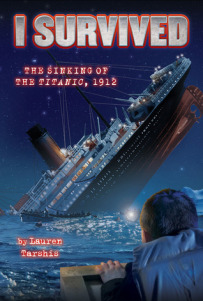

The Inferno has 34 cantos as oppose to 33 like Purgatory and Paradise. It is to complete 100 cantos, but it leaves Hell as a different number of cantos, an imperfect number. Thirty-three being two threes–a highly symbolic number.
In canto 33, Dante meets someone frozen in the ice for his traitorous ways. It is Ser Branca d’Oria who was still alive in Dante’s time. He is confounded that someone alive on earth is in Hell. Virgil explains that his body is alive on earth and possessed by a demon until the body dies, but his soul resides in Hell. Dante is most likely using the idea from the Last Supper when Satan entered Judas Iscariot. His soul was slain, yet his body lived.
I don’t like dealing with demonic things–talking about such things. But most cultures have the idea of the demonic. Sometimes people blame demons on poor decision making, when it was just the persons problematic heart, their love of lesser things. Yet, other times demonic influence could be a factor in certain diabolical scenarios. Nonetheless, the soul dies or shrinks, becomes less, when we go against morals we once held dear. Or by disassociating and ignoring the damage one is doing to another. Can this lead to the death of the soul? Like Voldemort, each time he murdered, his soul was split into many parts, eventually losing his entire being. I do not know the answer, but people, educated and not, talked about and thought about this stuff always and still do.
Now we come to the end. Canto 34.
Satan is encased in ice. He flaps his wings assuring the perpetual freezing of Cocytus, forever frozen. His wings a symbol of freedom, but he is perpetually trapped in ice. His three heads gnawing on the worst traitors: Judas Iscariot, Brutus, and Cassius.
Anthony Esolen: At the center of evil there is nothing but a small, hard, cold kernel of self, transcendentally small, a something just this side of emptiness. …That he flaps his wings everlastingly only underscores his impotence. He is the ‘evil worm’ who ‘gnaws a hole in the world.’ For Dante, escape from sin is escape from that tight little hole, to breathe the air of freedom and humanity, and to look upon those vast realms above–realms meant for the fire of love, and therefore also meant for man.”
Dante and Virgil climb down Satan and emerge from the underworld at dawn on Easter morning. And they arrive at the mount of Purgatory, exactly opposite of Calvary, the mount that Christ climbed that we, man (and woman) may climb Purgatory (Esolen commentary).
And so Dante has traveled through the Hell of sin; also his own sin. Emerged weary, yet to climb a mountain. This epic poem is our own story. There is Hell to pay, but God gives those the grace to climb toward Him. It takes a lifetime for most of us, if not all. And sometimes repentance doesn’t even come until the end of Purgatory, in the case of Dante, he finally weeps for his sins in the Earthly Paradise and is washed of his sin in the river of Lethe. The pain of sin gone.
Advertisements Share this:




